Graham Sharp Wilson
Biography
Graham Sharp Wilson was the youngest son of Mr Adam Wilson and Jane Cummings Sharp Wilson of 16 Wall Street, Camelon. Born in 1914 and educated at Carmuirs School, then Falkirk High School. Graduated Bachelor of Law at Glasgow University. He joined an Edinburgh law firm and in 1937 joined the RAF Volunteer Reserve. When war broke out he was called up immediately and served in France, covering the evacuation from Dunkirk. He is credited with having shot down a Heinkel. He then served for 9 months in the Libyan campaign. Then on to Greece, Syria and Iraq. He married on 18th October 1941 Miss Isobel Tripney Oswald of 26 Mansionhouse Road. He was awarded the Distinguished Flying Medal in March 1942 and promoted from Flight Sergeant to Warrant Officer (Observer) on 15th May 1942. He went as Observer, with Pilot F/Sgt Sharp, W/OP/AG F/Sgt Mantle, Fitter LAC A.E. Wright. Their aircraft was a Hudson AE548, which flew from Hendon to Portreath, then to Gibraltar, but crashed into the sea, on approach, at 1540 20th May 1942. It dived into the sea, floated for a short time, and Wilson's body was the only one recovered. Rest listed as "Missing, believed killed; cause unknown." He is buried in Gibraltar (North Front) Cemetery plot 2, row C, joint grave 8. 747916 W/O GS Wilson DFM. Graham Sharp Wilson 747916 Sergeant, No 37 Squadron L.G. 4.11.1941. Air Observer. This NCO has taken part in 47 operations of which 14 were done in Blenheim fighters and 33 with No.37 Squadron in Wellingtons. These operations include raids over Germany, France, Belgium, Holland, Libya, Albania, Bulgaria, Greece, Iraq and the Dodecanese. By his skill and coolness as a Navigator, he has on many occasions been largely responsible for the safe return of his aircraft in conditions of bad weather. In particular, on the night of 15th April, 1941, while carrying out a raid on German convoys in Kozani area, Greece, his aircraft became shut in a valley with 10/10ths cloud below the mountain tops. It was necessary to fly out of the valley with grave risk of flying into mountains and Sergeant Wilson's coolness and sound judgement were the greatest assistance to his Captain in this difficult manoeuvre. On 2nd May, 1941, and again on 4th May 1941, during daylight operations against Iraqi rebels, Sergeant Wilson's bombing panel was shattered by bullets during the run up to the target. He did not allow this to prevent him from releasing his bombs with satisfactory results. Sergeant Wilson has at all time displayed outstanding courage and devotion to duty and has set the highest example in the squadron. 17th October, 1941. [Tavender, I. 2000, The Distinguished Flying Medal Register for the Second World War with Official Recommendation Details. Vol 2, P.989.]
Share
Copy Link
Graham Sharp Wilson
Objects made by this person
Refine Results
Accession number:
A1563
Record level:
Collection
Name/title:
Graham Sharp Wilson personal papers
Production date:
1942
See full details
Accession number:
A1563.006
Record level:
Item
Name/title:
Memorial Scroll
Production date:
1945
See full details
Accession number:
A1563.001
Record level:
Item
Name/title:
Newspaper Cutting - Medal Award
Production date:
08 Nov 1941
See full details
Accession number:
A1563.002
Record level:
Item
Name/title:
Ticket - Royal Investiture
Production date:
24 Mar 1942
See full details
Accession number:
A1563.003
Record level:
Item
Name/title:
Newspaper Cutting - Medal Award
Production date:
Mar 1942
See full details
Accession number:
A1563.004
Record level:
Item
Name/title:
Newspaper Cutting - Medal Award
Production date:
May 1942 {original}, 2003 {photocopy}
See full details
Accession number:
A1563.005
Record level:
Item
Name/title:
Letter
Production date:
21 May 1942
See full details
Accession number:
A1563.007
Record level:
Item
Name/title:
Letter
Production date:
23 Jan 1966
See full details
Accession number:
A1563.008
Record level:
Item
Name/title:
Order of Service
Production date:
23 Jan 1966
See full details
Objects with this person as a subject
Refine Results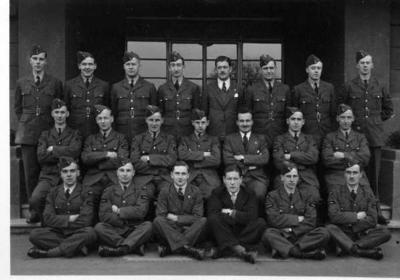 Accession number:
P35538
Name/title:
Group of airmen.
Production date:
1939-1942
See full details
Accession number:
P35538
Name/title:
Group of airmen.
Production date:
1939-1942
See full details
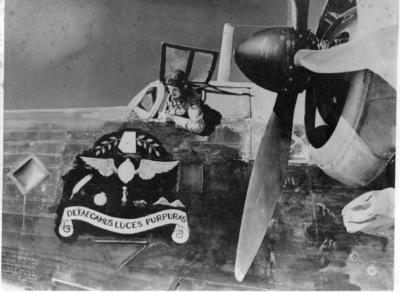 Accession number:
P35539
Name/title:
Graham S Wilson in an aircraft.
Production date:
1939-1942
See full details
Accession number:
P35539
Name/title:
Graham S Wilson in an aircraft.
Production date:
1939-1942
See full details
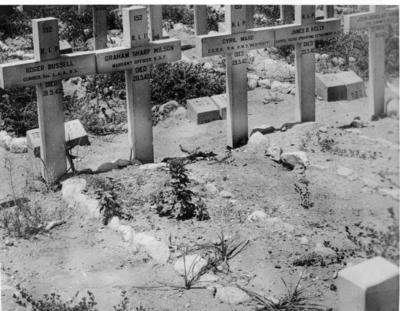 Accession number:
P35540
Name/title:
War graves, Gibraltar
Production date:
Post 20 May 1942
See full details
Accession number:
P35540
Name/title:
War graves, Gibraltar
Production date:
Post 20 May 1942
See full details
 Accession number:
P35541
Name/title:
War graves.
Production date:
Post 20 May 1942
See full details
Accession number:
P35541
Name/title:
War graves.
Production date:
Post 20 May 1942
See full details
 Accession number:
P35542
Name/title:
War grave of Graham Sharp Wilson of Camelon.
Production date:
Post 20 May 1942
See full details
Accession number:
P35542
Name/title:
War grave of Graham Sharp Wilson of Camelon.
Production date:
Post 20 May 1942
See full details
 Accession number:
P35543
Name/title:
War grave of Graham Sharp Wilson of Camelon.
Production date:
Post 20 May 1942
See full details
Accession number:
P35543
Name/title:
War grave of Graham Sharp Wilson of Camelon.
Production date:
Post 20 May 1942
See full details
Accession number:
A1563.006
Record level:
Item
Name/title:
Memorial Scroll
Production date:
1945
See full details
Accession number:
A1563.001
Record level:
Item
Name/title:
Newspaper Cutting - Medal Award
Production date:
08 Nov 1941
See full details
Accession number:
A1563.002
Record level:
Item
Name/title:
Ticket - Royal Investiture
Production date:
24 Mar 1942
See full details
Accession number:
A1563.003
Record level:
Item
Name/title:
Newspaper Cutting - Medal Award
Production date:
Mar 1942
See full details
Objects associated with this person
Refine Results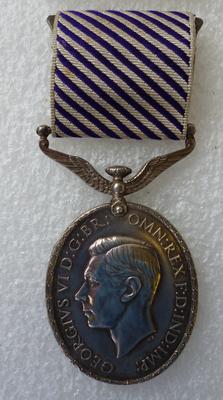 Accession number:
2003-048-001
Name/title:
medal; "Distinguished Flying Medal"
Production date:
1941
See full details
Accession number:
2003-048-001
Name/title:
medal; "Distinguished Flying Medal"
Production date:
1941
See full details
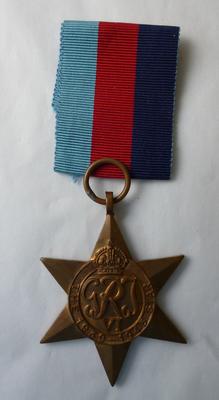 Accession number:
2003-048-002
Name/title:
medal; "1939-1945 Star"
Production date:
1945
See full details
Accession number:
2003-048-002
Name/title:
medal; "1939-1945 Star"
Production date:
1945
See full details
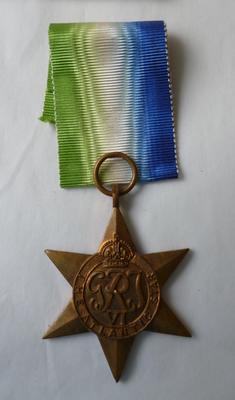 Accession number:
2003-048-003
Name/title:
medal; "Atlantic Star (1939-1945)"
Production date:
1945
See full details
Accession number:
2003-048-003
Name/title:
medal; "Atlantic Star (1939-1945)"
Production date:
1945
See full details
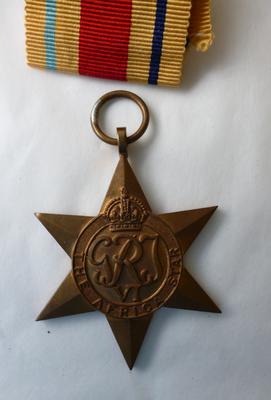 Accession number:
2003-048-004
Name/title:
medal; "Africa Star"
Production date:
1945
See full details
Accession number:
2003-048-004
Name/title:
medal; "Africa Star"
Production date:
1945
See full details
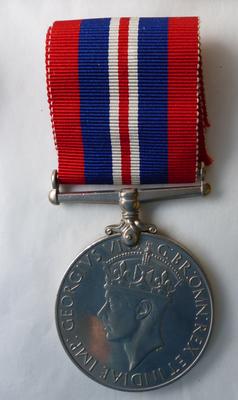 Accession number:
2003-048-005
Name/title:
medal; "War Medal 1939-1945"
Production date:
1945
See full details
Accession number:
2003-048-005
Name/title:
medal; "War Medal 1939-1945"
Production date:
1945
See full details
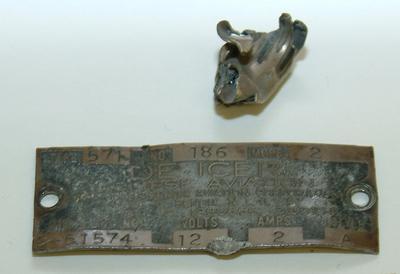 Accession number:
2003-048-006
Name/title:
aeroplane; pieces
Production date:
1942
See full details
Accession number:
2003-048-006
Name/title:
aeroplane; pieces
Production date:
1942
See full details
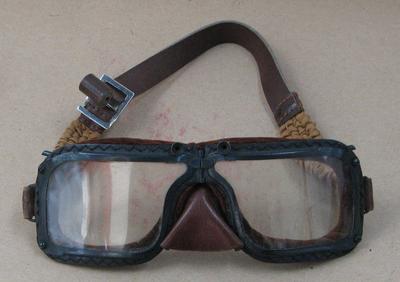 Accession number:
2003-048-007
Name/title:
goggles; flying
Production date:
1942
See full details
Accession number:
2003-048-007
Name/title:
goggles; flying
Production date:
1942
See full details
Accession number:
A1563
Record level:
Collection
Name/title:
Graham Sharp Wilson personal papers
Production date:
1942
See full details
Accession number:
P35545
Name/title:
RAF Officer looking at display on Graham Sharp Wilson
Production date:
(1990s)
See full details
